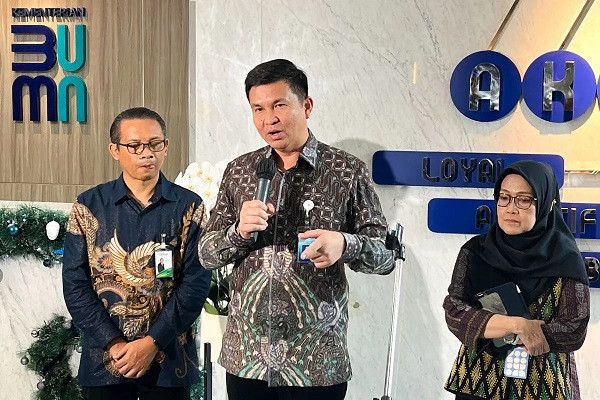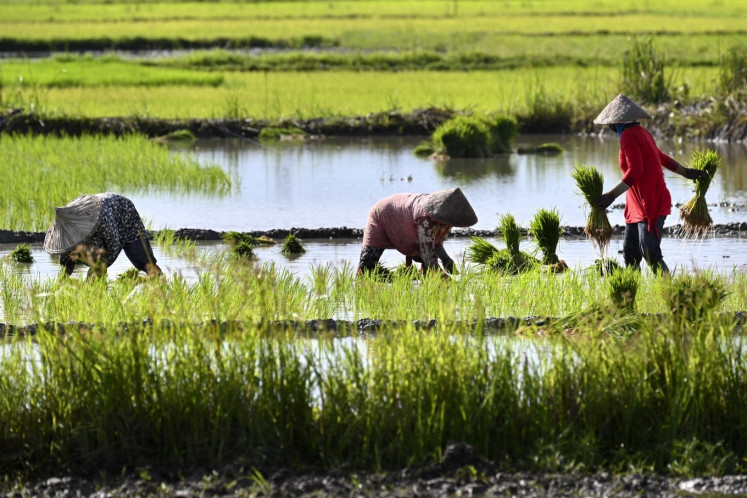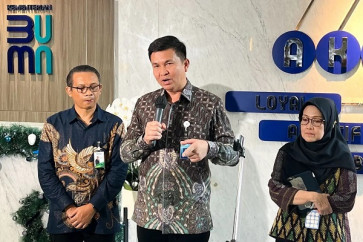Popular Reads
Top Results
Can't find what you're looking for?
View all search resultsPopular Reads
Top Results
Can't find what you're looking for?
View all search resultsThe grip of military capitalism on state-owned enterprises in Indonesia
Albeit vaguely, the revised TNI Law allows active military personnel to hold civilian and SOE posts, effectively legitimizing military economic involvement de facto.
Change text size
Gift Premium Articles
to Anyone
S
ince Prabowo Subianto assumed the presidency in October 2024, Indonesia’s political and economic architecture has shifted noticeably toward a more militaristic formation. Prabowo’s swift appointment of military loyalists to lead key strategic state-owned enterprises (SOEs) confirms that the state is moving toward a more overt and institutionalized military capitalism.
This phenomenon not only deepens the long-standing cronyism shackling SOEs but also marks the resurgence of military patrimonialism that has lain dormant since the 1998 reform era. Data exposed in Tenggara Strategics’ 2025 report clearly illustrates this pattern. The appointment of former Air Force officer Walmildan Tsani as CEO of the national flag carrier Garuda Indonesia, an alumnus of the military-focused Taruna Nusantara High School, exemplifies military infiltration into the national aviation sector.
Similarly, Simon Aloysius Mantiri’s leadership at the state oil and gas company Pertamina and the appointment of active general Novi Helmy Prasetya as CEO of the state logistics company Bulog demonstrate that SOEs have evolved beyond purely economic entities into instruments for articulating political and economic oligarchy led by a military-civil alliance tied to the ruling Gerindra Party.
This pattern is rooted in the Indonesian military’s chronic underfunding, a historical reality that has long driven the military to engage in economic activities as a survival mechanism and a way to consolidate political power.
This reached its peak during Sukarno’s era, when the military took control of Dutch and American companies that were nationalized. Under military control, critical sectors such as oil, plantations and logistics became tools not only to finance military operations but also to amass vast personal wealth.
Pertamina, established in 1957 as a military-backed national oil corporation, rapidly expanded and became the backbone of military wealth accumulation and internal patronage networks. This gave rise to what scholars term bureaucratic-authoritarian rentier military capitalism, where the military leveraged political access to dominate high-value state economic assets.
In post-New Order Indonesia, this tendency did not disappear but transformed into more subtle crony networks, as Hadiz and Robison describe in their study of post-authoritarian oligarchies in Southeast Asia. The current situation differs markedly in the absence of civilian camouflage; Prabowo and his allies openly display a military face behind every strategic economic policy. This trend was further cemented by the revision of the Indonesian Military (TNI) Law passed by the House of Representatives amid public protests earlier this year.


















